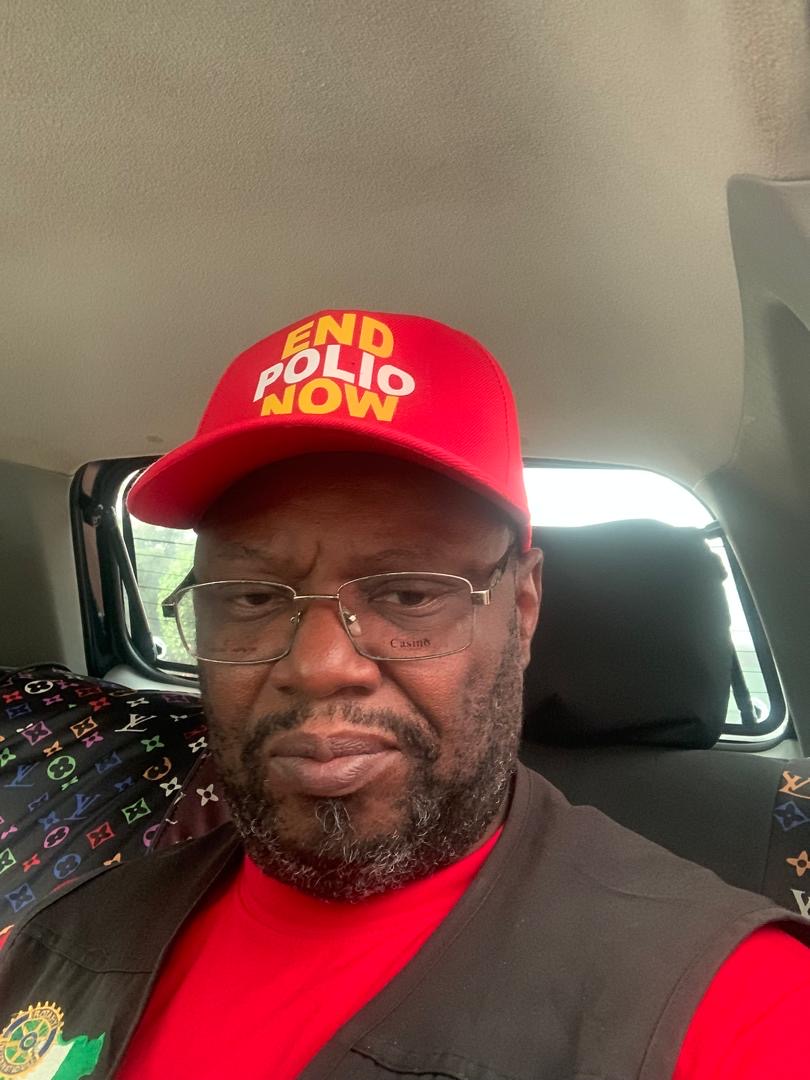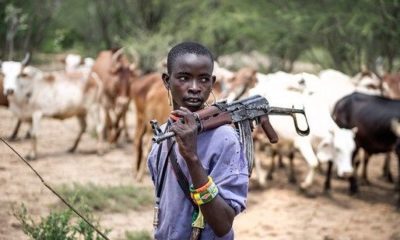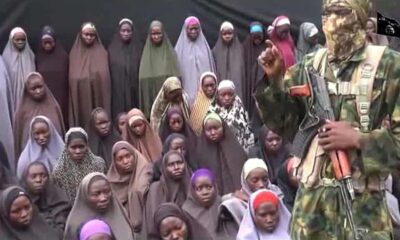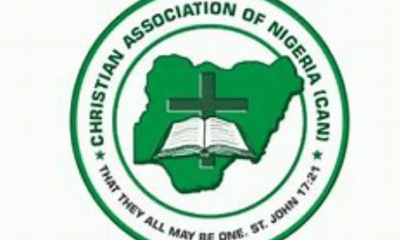
Opinion
10th Senate; Giant Strides/Starts of Senator Ahmed Wadada Aliyu

By Alfa Shittu Ishiaka.
Senator Ahmed Wadada Aliyu (Sarkin Yakin Keffi) Fondly refered to as ” The Horse Rider” is the Chairman, Senate Public Accounts Committee of the 10th Senate of the National Assembly under the leadership of Senator Obong Godswill Akpabio as Senate President, having won under the platform of Social Democratic Party SDP from Nassarawa state in the last March, 2023 general elections held in Nigeria and sworn in June, 2023.
Wadada representing Nassarawa West in the Senate is a political heavy weight both at the state and national level with ranking advantage as former member House of Representatives in 2011, when he represented Keffi, Karu and Kokona federal constituency of Nassarawa state.
A regular and frequent attendant of both plenary, committees and special session of the current Senate, was highly rated as one of the active senators in the current dispensation through public opinion poll, unknown to him.
An analyst described him as Agile, hardworking, Courageous , Fearless , focused, vocal and always up and doing,. Senator Wadada’s appointment came at a time when the need to rejig oversight functions of not only Ministries, Departments and Agencies needed a review and improvement, but including the need , to position government agencies with a view to delivering on their mandates.
Six months down the line as member of the Senate of the 10th Assembly, the workaholic , tireless Nassarawa West Senator has sponsored five bills with National and State impact on his constituents in Nassarawa state, a rare feat in recent times.

The bills covered areas of Agriculture, Auditing, Land Registry, Investments, and Transportation in the nation’s city, which played a crucial role to the development of both Nassarawa state and the country at large.
1. Agriculture Research Council of Nigeria Act Amendment Bill, 2023(SB.56) for establishment of a School of Fisheries and Aquatic Science at Umaisha in Toto Local Government Area.
2.Audit Service Bill, 2023(SB 132).
3.Federal Land Registry ( Miscellaneous Provision) Act. Amendment) Bill 2023(SB 178).
4. Nigeria investment Promotion Commission Act(Amendment) Bill, 2023(SB.196).
5. A Motion for the law enforcement agents to stem the tide of illegal garages, pick – up and drop off points in the FCT metropolis.
This was in June 2023 three days after the convening of the 10 the Senate.
All hail above mentioned bills have scaled first reading and are awaiting the second reading to enable the Senate debate it appropriately.
There is hardly a day, Senator Ahmed Wadada Aliyu doesn’t contribute to the activities in the Plenary being a vocal, focused and a ranking legislator already conversant with the challenges of law making and all required to achieve maximally. His voice in the constituency is also loud as he is a man in sync with his constituents.
In addition to his chairmanship of the Senate Committee on Public Accounts , Distinguished Senator Aliyu Wadada also hold the membership of the following committees of the Senate.
1. Marine Transport.
2.Ecology and Climate change
3.Agriculture Production ,Services and Rural development.
4.Employment and Productivity
5.Foreign Affairs.
6.Agriculture Colleges and Institution.
7.Solid Minerals.
8.Youth and Sports.
9.Navy.
10.Oil and Gas host Communities.
11.Trade and investments.
12.Women Affairs.
and
13.Media and Public Affairs.
To solidify the oversight functions of his committee, Wadada in 2023 advised President Bola Ahmed Tinubu through his committee on the need for appointment of substantive Auditor General of the federation OAGF, an advise the President oblige without delay in line with the constitutional requirements.
As we look forward towards the resumption of the National Assembly by January 30 , 2024 , no doubt the Nassarawa Senator will do more in all areas to ensure smooth running of government in all areas.
• Alfa Shittu Ishiaka is Senior Legislative Aide to Senator Ahmed Wadada Aliyu
Opinion
2025 World Polio Day: Reflections on Rotary’s Humanitarian Journey — By Max Amuchie

For Rotarians the world over October 24 every year is a significant day, a day set aside to mark the World Polio Day. It also serves to commemorate the birthday of Jonas Salk, the man who developed the polio vaccine. For this year District 9127 under the leadership of the District Governor, Dame (Dr) Princess Joy Nky Okoro, hosted the other five Rotary International District Governors in the country in an all-Nigeria week-long celebration that lasted from October 17 to October 25.
Rotary’s dedication to eradicating polio is one of the most significant efforts in the history of public health and it’s involvement has been a game-changer, demonstrating the power of private-sector commitment to a global health goal.
Rotary began its efforts in 1979 with a multi-year project to immunise children in the Philippines. This led to the launch of PolioPlus in 1985, which was the first and largest internationally coordinated private-sector support of any public health initiative.
In 1988, Rotary joined with the World Health Organisation (WHO), the U.S. Centres for Disease Control and Prevention (CDC), and UNICEF to launch the Global Polio Eradication Initiative (GPEI). The Bill & Melinda Gates Foundation later joined as a key partner.
Rotarians worldwide have contributed over $2.9 billion and countless volunteer hours to the eradication effort. They also play a crucial role in advocating for and securing more than $11 billion in funding from donor governments.
Beyond money

For any Rotarian, the fight against polio is not just a humanitarian project—it’s a four-decade pledge that embodies the organisation’s motto of “Service Above Self.” It’s a commitment that goes far beyond financial donations, representing a unique blend of global advocacy, local action and persistent dedication until the last case of the wild poliovirus is found.
Nigeria’s Triumph: The Eradication of Wild Poliovirus
Nigeria’s success in ending wild poliovirus transmission is one of the most significant public health achievements of the 21st century. As the last country in Africa to eliminate the disease, Nigeria was certified free of wild poliovirus on August 25, 2020, an official declaration that certified the entire African region as wild polio-free.
This victory was the culmination of decades of dedicated effort, overcoming immense challenges ranging from conflict and remote geography to vaccine hesitancy.
In 2012 Nigeria accounted for roughly half of all global wild polio cases. It was a huge challenge, spurring a renewed, national priority effort.
Two years later, 2014 Nigeria was removed from the list of endemic countries and in 2016 the last case of indigenous wild poliovirus was recorded in Borno State.
Finally in 2020 Nigeria and the entire African Region got certified wild polio-free. The ultimate goal achieved achieved after meeting the stringent four-year zero-case requirement.
Nigeria’s victory proved that, with unwavering commitment and global partnership, even the most persistent and devastating public health crisis can be solved.
The Final Vow: Persistence in the Endgame
Rotarians have been fighting polio since 1979. The current stage, with the wild virus remaining endemic only in Afghanistan and Pakistan, demands the highest level of commitment and that’s exactly what Rotary International and Rotarians the world over have given and are committed to continue giving to completely eradicate this disease.
The ‘End Polio Now’ campaign is more than just a public health initiative; it is the single greatest embodiment of Rotary International’s core values. It serves as the clearest articulation of Rotary’s commitment to placing humanitarian causes at the centre of its identity, uniting millions of members behind a singular, transformative goal: to ensure no child ever suffers from the debilitating disease again.
At its heart, the fight against polio is driven by the foundational motto: Service Above Self. This principle demands an enduring, selfless commitment that far transcends local club projects. For Rotary, this translates into mobilising over $2.6 billion, deploying countless volunteer hours, and maintaining a relentless focus across political, geographical, and logistical barriers. It is a long game—a testament to Rotary’s sustained willingness to give its resources, time, and global influence not for credit or recognition, but purely for the well-being of humanity.
The scale of the initiative also perfectly aligns with the value of Fellowship and Global Reach. Polio eradication is a multi-national partnership involving the World Health Organisation, UNICEF, the US CDC, the Bill & Melinda Gates Foundation and the Sir Emeka Offor Foundation but it is anchored by the diverse network of Rotary clubs. Members from over 200 countries and geographical areas have collaborated, demonstrating that differences in culture or language dissolve when faced with a shared humanitarian objective. This global fellowship transforms individual local clubs into a unified force capable of complex, worldwide coordination, illustrating the power of diverse connections focused on a single mission.
Furthermore, the Polio fight embodies Integrity and Perseverance. Eradication is a slow, difficult, and often dangerous task, requiring Rotarians and frontline workers to operate in some of the most challenging regions on Earth like in crisis-hit Northeast of Nigeria. The continuous, ethical dedication required to reach the very last child with the vaccine, year after year, reflects the integrity of the process. There is no simple reward for Rotarians, only the steadfast determination to complete what they started, thereby proving that the commitment to a promise—the promise of a polio-free world—is immutable.
Polio is Rotary’s defining mission because it synthesizes every core value into concrete, life-saving action. It is the gold standard for global volunteering, showcasing how strong leadership, integrity in action, and a unified global fellowship, all centred on “Service Above Self,” can lead to the successful pursuit of the world’s most critical humanitarian objectives. When the final case of wild polio is recorded – that is when Pakistan and Afghanistan become polio free – it will be the ultimate validation of Rotary’s enduring purpose.
Reflections
People join Rotary for a variety of reasons that most times fall into two main categories namely the opportunity for Service and the benefits of Fellowship and Personal Growth.
Rotary has two official mottos. The one commonly cited is ‘Service Above Self’. This is the principal and most famous motto. It embodies the humanitarian spirit of Rotary and its members, emphasising that the primary purpose is to volunteer and serve the needs of others.
The older motto is One Profits Most Who Serves Best: This reinforces the idea that true reward comes from successful service to the community and the world.
If Rotarians live by this dual credo and apply them in their daily lives and in pursuing humanitarian causes, the society and the world will be a much better place.
The fight against polio and Rotarians’ avowed commitment to ensure the total eradication of this disease can be seen in the context of the organisation’s two mottos.
•Dr Max Amuchie, a member of the Nigerian Guild of Editors (NGE) and Associate of the Nigerian Institute of Public Relations (NIPR), is the District Media Relations Chair, Rotary International District 9127
Opinion
Nigeria Happened to ‘Sommie’: Her Death, Bleeding Wound of a Failing State

By Ebuka Ukoh
She was bright and beautiful. Courage and conviction defined her. At 29, Somotochukwu Christelle Maduagwu, also fondly known as ‘Sommie’, was an attorney, rising broadcaster, and advocate for women, children, and her nation. She could have remained in Britain, where she held citizenship, but she chose to return to Nigeria to help make it work.
But Nigeria failed Sommie!
All her passion could not shield her from the ballets of villains—right inside her own home in Abuja, Nigeria’s Federal Capital Territory. Reports say the police were alerted during the robbery incident, yet there was no prompt response. She gave her heart to a nation that could not protect her in return.
Tributes have poured in from the high and mighty. The FCT Commissioner of Police offered condolences. But Nigerians must ask: Are the police a commiseration body, or a constitutional institution to protect life and property? Nigerians do not need sympathy; they need safety.
Nigeria failed her again. When rushed to a hospital, she was reportedly denied treatment for lack of identification; precious time was lost. Do we blame the hospital? Partly. But hospitals here have been punished for acting without paperwork. Like the robbery and the police inaction, this reflects a broken state that normalises death.

Her story joins a tragic chorus: Deborah Samuel lynched in Sokoto, Ammaye beaten to death in Niger, Ojo Peter, the journalist, slain by robbers, and Barnabas, the guard, who died resisting Christelle’s attackers. These are not accidents; they are symptoms of a failing state.
Condolences Without Consequence
Every tragedy is met with promises: “We will investigate,” “We will bring perpetrators to justice.” Yet justice rarely comes. Deborah’s killers posed for selfies and remained free till date. Eunice Olawale’s killers were never prosecuted. Will Christelle’s case be any different?
The message is chilling: if a mob or a gunman kills you in Nigeria, your death may trend for a day, but justice will not follow. When life can be taken without consequence, law itself becomes optional.
Learning From Our African Sisters
Nigeria is not the only country facing violence or weak systems. But others on the continent show us what leadership can do:
These reforms are not perfect, but they prove something vital: African nations can, with will and vision, place value on human life. Why can’t Nigeria?
Way Forward: From Eulogies to Reform
Nigeria’s security crisis is not inevitable; it is a product of choices. To change course, we need:
A Trumpet, Not a Whisper
Somtochukwu’s life was a light. Her death is a wound. Let it also be a trumpet—calling us not just to mourn, but to demand, move, organise and act.
No Nigerian deserves to die the way she did. Not the lawyer in Abuja. Not the farmer in Zamfara. Not the student in Sokoto. None.
We must not settle for a country where “Nigeria happened” is the shorthand for tragedy. We must build one where “Nigeria happened” means resilience, justice, and life preserved.
History will not forgive endless condolences. It will only remember whether we turned grief into governance.
• Mr Ukoh, an alumnus of the American University of Nigeria, Yola, and PhD student at Columbia University, writes from New York.
Opinion
Nigeria @ 65: Time To Retire Excuses

By Ebuka Ukoh
My earliest [but adult] memory of the Nigerian Independence Day celebration dates back to my days at the American University of Nigeria. There, we celebrated as one—irrespective of creed, tribe or tongue—bathed in glitz, glam, and joy. Before then, October 1st was just another public holiday for five-a-side soccer games. At that time, “wetinconsine me,” as we used to say in the popular jingo. But the years have changed me. Independence Day celebrations are no longer distant rituals; Independence Day is now a call to responsibility, to birth the Nigeria we can all be proud of.
Age of Accountability
At 65, nations—like individuals—are too old for excuses. Retirement age is when excuses end and maturity begins. Nigeria must reckon with its age: too seasoned to still stumble over the basics, too blessed to still fail its people.
Yes, hardship is real, more than ever before: food inflation is crippling families; insecurity rages from Zamfara to Plateau; electricity remains epileptic despite billions of dollars invested; the number of out-of-school children tops the global chat; unemployment pushes graduates into despair; and young Nigerians risk deserts and seas to escape. These are legitimate reasons to lose hope. But hopelessness is not an option. At 65, excuses are embarrassing; urgent action is needed.
Nigeria’s Dual Story

The Nigerian story is one of painful contrasts:
Abroad, Nigerians excel in medicine, tech, sports, and the arts. When our resilience meets systems that work, brilliance becomes effortless.
At home, citizens grapple with cash scarcity, unreliable fuel supplies, broken promises, and a leadership culture that normalises dysfunction.
The Ghanaian writer Ama Ata Aidoo once said, “We cannot afford to be mere spectators in our own lives.” Nigerians must not remain spectators in their nation’s destiny. Beyond prayers, we must think, strategise, and act.
Ordinary Heroes
Nigeria’s true wealth lies not in oil wells or government palaces, but in ordinary people who hold the nation together:
Farmers who keep planting and harvesting even as insecurity threatens their lives.
Teachers who, with meagre salaries and under broken roofs, still shape tomorrow’s leaders.
Artisans and informal workers—mechanics, traders, drivers, tailors—who make daily life possible.
Innovators in fintech, climate, and healthcare, who build against all odds.
And there are visionaries like Randy Peters, pressing relentlessly for electoral reform. These doers remind us that patriotism is not a theory—it is a sacrifice.
Retiring Excuses
At 65, a man lives on his investments. At 65, Nigeria must retire excuses and live on the resilience of its people, the richness of its culture, and the brilliance of its diaspora. We can not blame colonial legacies or global conspiracies. The question is simple: will we finally live on what we already have?
Icons Guiding Us
Chinua Achebe once warned, “A man who makes trouble for others is also making trouble for himself.” Our collective shortcuts and excuses are the trouble we keep bequeathing to the young.
Ama Ata Aidoo reminded us that Africa’s freedom is incomplete without women’s freedom. At 65, Nigeria’s maturity must reflect dignity for all, including women and girls.
Kwame Nkrumah’s words still ring true: “We face neither East nor West. We face forward.” Nigeria must finally face forward—with courage, not excuses.
Forward Vision: Africa in Context
Nigeria does not exist in isolation. Africa is the youngest continent, and Nigeria is its beating heart. What Nigeria does—or fails to do—ripples across the continent. If Nigeria rises, Africa rises. If Nigeria falters, Africa bleeds. The battle for Nigeria’s soul is not just national; it is continental. Africa is the future, and Nigeria must lead with clarity, courage, and conviction.
Call To Dignity, Doing
Nigeria at 65 must be a turning point:
Parents, aunties, uncles—remember, children watch what you do more than what you say.
Citizens—demand accountability, mentor the young, and treat one another with dignity.
Leaders—stop trading excuses. Invest in people, not propaganda.
Suppose we can respect embassies with our punctuality, honour hospitals with our presence, and fill religious gatherings on time. In that case, we can also respect one another enough to build orderly roads, demand transparent budgets, and hold leaders accountable.
Retire Excuses, Reclaim The Future
Nigeria is too old to be this careless. Too gifted to be this wasteful. Too promising to be this stagnant. Nigeria cannot be rebuilt on excuses. It must be rebuilt on courage, competence, and compassion. If we can shine abroad, we can thrive at home. If we can pray with faith, we can also act with purpose.
The day we stop celebrating optics and start demanding outcomes will be the day Nigeria grows up. The future is already watching—in the eyes of our children. They deserve a Nigeria where dignity is normal, where leaders are accountable, and where citizenship is an honour, not a burden.
At 65, excuses must retire. Action must begin. For the sake of our children, for the honour of our heroes past, and for the soul of Africa’s future—Nigeria must finally grow up.
The time is now.
-

 News4 hours ago
News4 hours agoBREAKING: FG bans open cattle grazing nationwide
-

 News2 days ago
News2 days agoNigeria Under Siege: 2,496 students abducted in 92 school attacks since Chibok
-

 News2 days ago
News2 days agoBREAKING: 50 abducted Niger Catholic school students escape, reunite with families — CAN
-

 News1 day ago
News1 day agoBoko Haram beheads two women over alleged idolatry
-

 News2 days ago
News2 days agoJUST IN: 38 abducted Kwara church worshippers regain freedom
-

 News2 days ago
News2 days agoTinubu orders withdrawal of police officers guarding VIPs
-

 News1 day ago
News1 day agoTrump asks Tinubu to hunt down bandits behind school kidnappings
-

 News2 days ago
News2 days agoNDLEA detains 20 Filipino Crew over cocaine shipment from Brazil



















